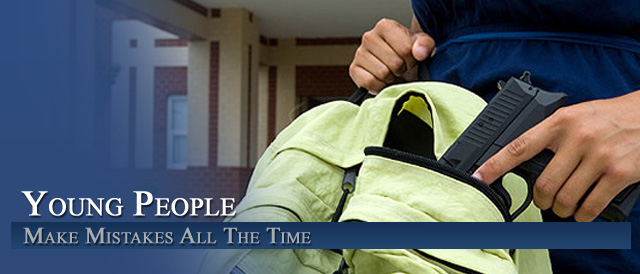
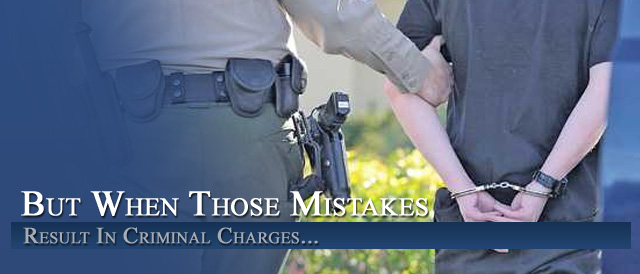
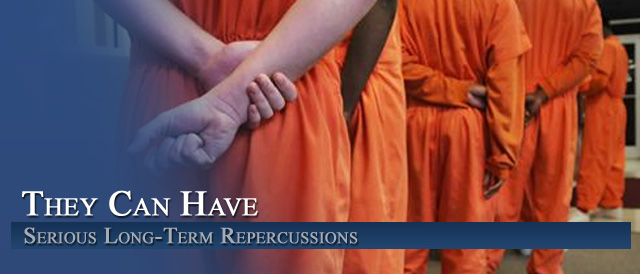
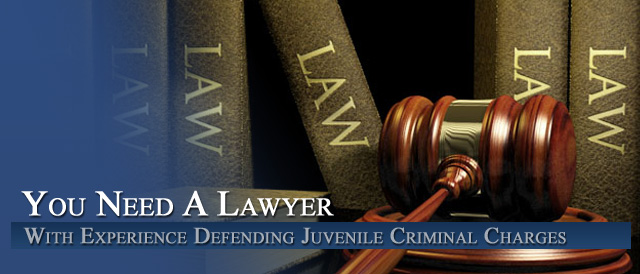
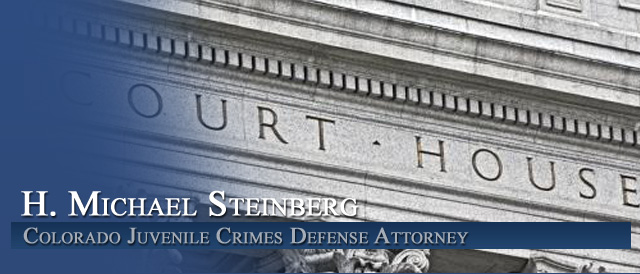
The Filing Of Charges Decision In Colorado Juvenile Criminal Cases – The Charging Decision – Plea Bargaining Part I of II

The Filing Of Charges Decision In Colorado Juvenile Criminal Cases – The Charging Decision – Plea Bargaining
By H. Michael Steinberg – Colorado Criminal Juvenile Defense Lawyer – Attorney
The Filing Of Charges Decision In Colorado Juvenile Criminal Cases – The Charging Decision and Plea Bargaining – The Filing Of Charges Decision In Colorado Juvenile Criminal Cases is made by the District Attorney’s office. This article briefly addresses the methods of charging a case available to the prosecutor and Part II addresses possible plea bargains.
A juvenile charged under Colorado law – can – in addition to the actual charges filed – “classify” juveniles further based on the seriousness of the charges, the juvenile’s prior juvenile record, or both.
The Filing Decision – The Petition In Delinquency – Methods Of Charging Juveniles
Among the most serious of these categories related to the charges – is the allegation is that the juvenile is an “Aggravated Juvenile Offender.“
Here are the categories that can be alleged in the Petition In Delinquency
§ 19-2-516. Petitions – special offenders
(1) Mandatory sentence offender. A juvenile is a mandatory sentence offender if he or she:
(a) (I) Has been adjudicated a juvenile delinquent twice;
or
(II) Has been adjudicated a juvenile delinquent and if his or her probation has been revoked for a delinquent act;
and
(b) (I) Is subsequently adjudicated a juvenile delinquent;
or
(II) Has probation revoked for a delinquent act.
(2) Repeat juvenile offender. A juvenile is a repeat juvenile offender if he or she has been previously adjudicated a juvenile delinquent and is adjudicated a juvenile delinquent for a delinquent act that constitutes a felony or if his or her probation is revoked for a delinquent act that constitutes a felony.
(3) Violent juvenile offender. A juvenile is a violent juvenile offender if he or she is adjudicated a juvenile delinquent for a delinquent act that constitutes a crime of violence as defined in section 18-1.3-406(2), C.R.S.
(4) Aggravated juvenile offender. (a) A juvenile offender is an aggravated juvenile offender if he or she is:
(I) Adjudicated a juvenile delinquent for a delinquent act that constitutes a class 1 or class 2 felony or if his or her probation is revoked for a delinquent act that constitutes a class 1 or class 2 felony;
or
(II) Adjudicated a juvenile delinquent for a delinquent act that constitutes a felony and either is subsequently adjudicated a juvenile delinquent for a delinquent act that constitutes a crime of violence, as defined in section 18-1.3-406(2), C.R.S., or has his or her probation revoked for a delinquent act that constitutes a crime of violence, as defined in section 18-1.3-406(2), C.R.S.;
or
(III) Adjudicated a juvenile delinquent or if his or her probation is revoked for a delinquent act that constitutes felonious unlawful sexual behavior under part 4 of article 3 of title 18, C.R.S., incest under section 18-6-301, C.R.S., or aggravated incest under section 18-6-302, C.R.S.
(b) Provisions concerning aggravated juvenile offenders are located in section 19-2-601.
For The Impact Of Enhanced Juvenile Classifications – See Article On Sentencing In Colorado Juvenile Cases
The “special delinquency status” discussed in this article can result in statutorily mandated sentencing requirements.
One example is the “mandatory offender.” In this instance the sentence is to a minimum one year out-of-home placement with the Department of Social Services or a commitment to D.Y.C.,
However the judge can enter “special findings” that an alternative sentence of less than one year would be more appropriate.
Another example of a special delinquency status, as noted above, includes adjudication as an “aggravated juvenile offender,” a violent juvenile offender, a repeat juvenile offender. If a juvenile is adjudicated (found guilty – conviction) an aggravated juvenile offender the sentence may result in a commitment to the Division of Youth Corrections (DYC) for a period exceeding two years.
The Filing Of Charges Decision In Colorado Juvenile Criminal Cases – The Charging Decision – Plea Bargaining – Juvenile Pleas – Not Guilty Pleas – Procedure
If a juvenile decides – with the advice of his parents and or lawyer – and after plea bargaining has taken place to enter a plea of not guilty to the allegations in the petition for delinquency – the case is then set for trial.
The Filing Of Charges Decision In Colorado Juvenile Criminal Cases – The Charging Decision – Plea Bargaining – Juvenile Pleas – Guilty Pleas As A Result Of A Plea Bargain
If a juvenile – with the advice of his parents, guardian and or lawyer – negotiates a plea bargain with the District Attorney, then the plea bargain is entered on the record subject to the judge’s discretion to accept the plea bargain’
The plea must follow a lengthy advisement of rights which includes the following:
If the juvenile wants to plead guilty, the court must first determine that the juvenile understands the rights he or she is giving up by pleading guilty and that:
1. The juvenile understands the nature of the alleged delinquent act, the elements of the offense to which he or she is pleading guilty, and the effect of the plea;
2. The juvenile’s plea of guilty is voluntary and is not the result of undue influence or coercion on the part of anyone;
3. The juvenile understands and waives his or her right to trial on all issues;
4. The juvenile understands the possible sentencing alternatives available to the court;
5. The juvenile understands that the court has sole discretion over what the final sentence will be, regardless of what other parties may have said;
and
6. There is a factual basis for the plea of guilty.
For the Types of Plea Bargains That a Juvenile Can Enter Into: The Filing Of Charges Decision In Colorado Juvenile Criminal Cases – How Is The Case To Be Charged – Plea Bargaining? Part II of II.
The Filing Of Charges Decision In Colorado Juvenile Criminal Cases – The Charging Decision – Plea Bargaining
ABOUT THE AUTHOR: H. Michael Steinberg – Email The Author at: hmichaelsteinberg@colorado-juvenile-crimes-lawyer or call his office at 303-627-7777 during business hours – or call his cell if you cannot wait and need his immediate assistance – 720-220-7777.
If you are charged with A Colorado crime or you have questions about The Filing Of Charges Decision In Colorado Juvenile Criminal Cases – The Charging Decision and Plea Bargaining, please call our office. The Law Offices of H. Michael Steinberg, in Denver, Colorado, provide criminal defense clients with effective, efficient, intelligent and strong legal advocacy. We can educate you and help you navigate the stressful and complex legal process related to your criminal defense issue.
H. Michael Steinberg, is a Denver, Colorado criminal defense lawyer with over 40 years of day to day courtroom experience – specializing in Colorado Criminal Law along the Front Range. He will provide you with a free initial case consultation to evaluate your legal issues and to answer your questions with an honest assessment of your options. Remember, it costs NOTHING to discuss your case. Call now for an immediate free phone consultation.
Helping Clients To Make Informed Decisions In the Defense of Colorado Criminal Cases.
Contact A Lawyer with Three Decades of Experience as a Denver Criminal Attorney at The Steinberg Colorado Criminal Defense Law Firm Today.
Colorado Defense Lawyer H. Michael Steinberg provides solid criminal defense for clients throughout the Front Range of Colorado – including the City and County courts of Adams County, Arapahoe County, City and County of Boulder, City and County of Broomfield, City and County of Denver, Douglas County, El Paso County – Colorado Springs, Gilpin County, Jefferson County, Larimer County, and Weld County,…. and all the other cities and counties of Colorado along the I-25 Corridor… on cases involving …The Filing Of Charges Decision In Colorado Juvenile Criminal Cases – The Charging Decision – Plea Bargaining.
Other Articles of Interest:
- Colorado Juvenile Criminal Process – The Filing Decision
- Colorado Juvenile Law Statutes
- The Filing Of Charges Decision In Colorado Juvenile Criminal Cases – How Is The Case To Be Charged – Plea Bargaining Part II of II
- Understanding The Colorado Juvenile Pretrial System Part I of II
- Colorado Juvenile Criminal Cases – Why Plea Bargaining In Juvenile Criminal Cases Is Different












